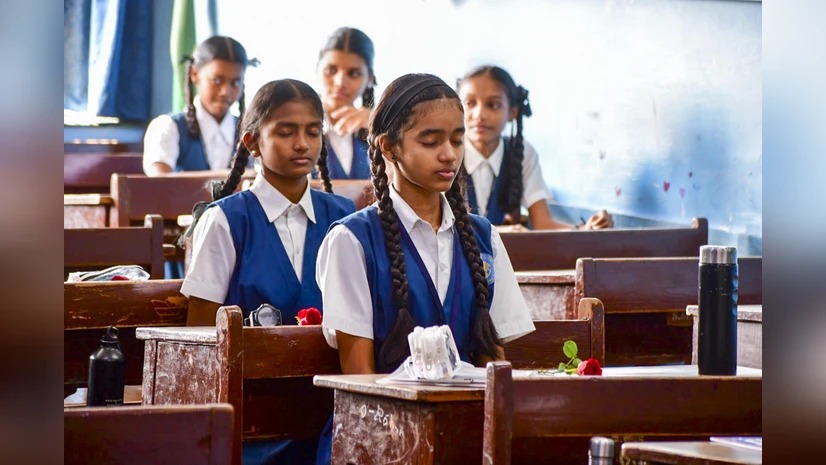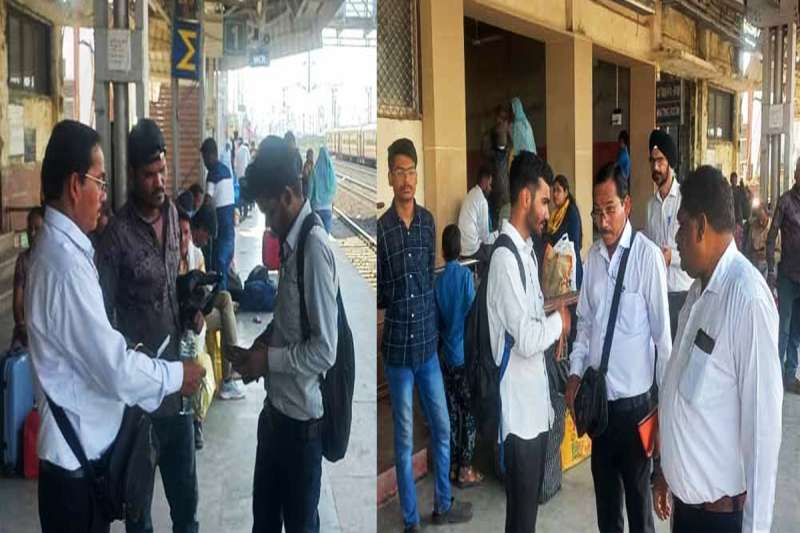Adarsh Kumar Goel, J.@mdashThis order will dispose of CWP Nos. 6852 of 1997 and 11095 of 1999.
2. CWP No. 6852 of 1997 seeks declaration that Rule 9(1) of the Punjab Educational Service (College Cadre) (Class I) Rules, 1976 (for short, ''the Rules'') is ultravires Articles 14 and 16 of the Constitution to the extent it prescribes teaching experience of eight years before and after Ph.D. degree for direct recruitment to the post of Principal.
3. Case of the Petitioners is that they were working as lecturers. Advertisement dated 14.9.1996, Annexure P.7 for recruitment to the posts of Principals in the College cadre was issued which prescribed following qualifications:
a) M.A. Ist Class or High Second Class (50%) in the concerned subject or an equivalent qualification from a Foreign University and eight years teaching experience.
b) Ph.D alongwith 8 years teaching experience.
4. The Petitioners made representation to the effect that prescribed teaching experience should be eight years either after M.A. or after the Ph.D. degree and the ambiguity should be made clear. Candidature of the Petitioners was rejected for want of requisite qualification. According to the Petitioners, provision in the rule and in the advertisement were arbitrary.
5. In the reply filed on behalf of the Public Service Commission, stand taken is that the Petitioners did not possess the requisite qualification. Similar stand has been taken on behalf of the State.
6. The Petitioners were allowed to be provisionally interviewed under interim order dated 16.5.1997 and result was directed to be declared vide order dated 22.7.1998 and it is stated by learned Counsel for the parties that the Petitioners were not found to have been selected even considering them to be eligible. CWP No. 11095 of 1999 has been filed to challenge the result dated 15.6.1999 conveyed to the Petitioner. However, no further argument has been addressed to show how the result was bad.
7. The main petition was kept pending to await decision in the connected writ petitions being CWP No. 6828 of 1997, which was decided on 7.1.1998. It was held:
...A bare reading of the plain language used in Rule 9(i) and appendix ''B'' shows that a candidate must possess both the qualifications namely MA with 8 years'' teaching experience and Ph.D. with 8 years'' teaching experience. The word "or" does not appear between Clauses (a) and (b) of appendix ''B''. If we were to accept the contention urged by Shri Amarjit Singh that a candidate who possesses either of the two qualifications should be treated eligible, we shall have to add the word "or" between Clauses (a) and (b). That will not only amount to usurpation of the jurisdiction vested in the rule making authority but will also be contrary to the two well established canons of interpretation i.e (i) that the language of a statute must be given plain and grammatical meaning unless such interpretation leads to anomalous or absurd result or causes grave public mischief; and (ii) that the Court cannot ordinarily add to or subtract from the language of the statute. The function, jurisdiction and duty to supply omissions in the statutory enactments/instruments is of the Legislature or the authority upon whom the power to make rules has been conferred and ordinarily it is not for the Courts to exercise this jurisdiction.
xxx xxx xxx
By applying the rule of plain and grammatical construction, it becomes clear that in order to be considered eligible for recruitment as Principal by direct recruitment, a candidate must not only have secured the degrees of MA and Ph.D but he must possess 16 years'' teaching experience out of which 8 years'' experience must be after post graduation and the remaining 8 years after doing Ph.D. The very prescription of 8 years'' teaching experience separately in Clauses (a) and (b) shows that the experience gained before acquiring the qualifications of MA and Ph.D cannot be taken into consideration for the purpose of recruitment as Principal.
8. The matter thereafter came up for hearing before learned Single Judge on 9.7.2008 and it was observed that prescription of qualification for appointment by direct recruitment was, prima facie, anomalous. Vide order dated 4.2.2009, learned Single Judge directed the matter to be placed before the Division bench as vires of Rule 9 above were under challenge.
9. We have heard learned Counsel for the parties and perused the record.
10. Learned Counsel for the Petitioners raised following submissions:
i) Qualification for promotion was only Masters degree with eight years experience while qualification for direct recruitment was 16 years experience with Ph.D degree.
ii) The requirement in the rule as interpreted in the earlier DB judgment of this Court of having eight years teaching experience after M.A. and eight years experience after Ph.D was not rational as a person with Ph.D even with 16 years experience will not be eligible.
11. Learned Counsel for the State justified the prescribed qualification as rational and valid.
12. We have considered rival contentions. In our view, contentions raised on behalf of the Petitioners cannot be accepted.
The relevant rule is as under:
Qualifications and experience for appointment to the Service:
(ii) by direct recruitment, (iii) by promotion i) By Direct Recruitment:
a) M.A. First Division or High Second Division (50%) in relevant subject or an equivalent degree of a foreign University with 8 years teaching experience.
b) Ph.D with 8 years teaching experience.
ii) By promotion:
Experience of working as a lecturer for a minimum period of eight years.
13. As regards first contention, there is no legal bar in laying down different qualification for direct recruitment and promotion. Candidate to be appointed by promotion could be treated as a separate category. As regards the anomaly in reading the rule as laying down requirement of eight years experience before Ph.D degree and eight years experience after the Ph.D degree, we are of the view that matter is covered by earlier DB judgment referred to above. It cannot be held that a Ph.D candidate with 16 years experience after Ph.D is excluded. Moreover, the Petitioners do not claim to have 16 years experience after Ph.D. Interpretation in the earlier DB judgment does not hold such a candidate to be ineligible. It only says eight years experience after Ph.D is must. We make it clear that a person with 16 years experience with requisite educational qualification will be eligible if eight years or more experience is after Ph.D. It is not necessary that eight years experience should be prior to Ph.D.
14. In view of above, no interference is called for.
15. The petitions are disposed of accordingly.

